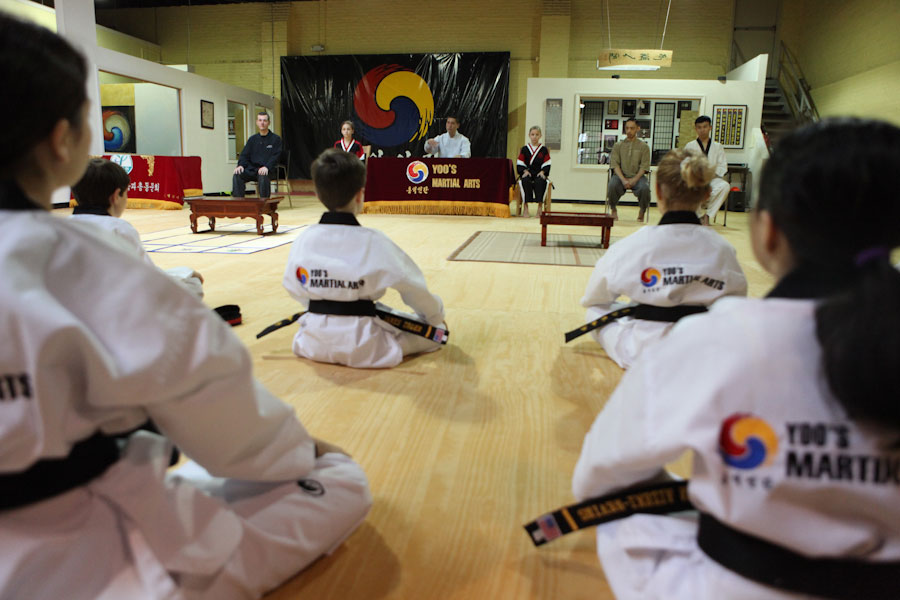
Taekwondo Philosophy | ITF Philosophy
The ITF Philosophy
According to the ITF philosophy of taekwondo, this art is focused on the attainment and creation of a more peaceful existence. In order to achieve the creation of a peaceful world, taekwondo teaches that the beginning of peaceful interaction requires a focus on the individual. The individual is considered the foundation of the art and through practice one is able to develop character, a personality, and increase morality and ethics. Building on the foundation allows one to obtain positive attitudes and traits; thus, achieving the ultimate end goal.
Taekwondo, as an ITF concept, is an art working towards the development of an individual’s personality. Achieving characteristics such as respect, courtesy, trustworthiness, goodness, humility, patience, courage, integrity, self-control, perseverance, and a sense of responsibility, is a method to respect and help all forms of life. To achieve this personality, an individual must undergo complex training; however, the training is often so difficult that many do not achieve all traits required to be a perfect development. Taking this into account, it is considered that the mental, spiritual, and physical effort will contribute to the development of positive attitudes and the external perception by society.
When engaging in taekwondo, it is possible for the practitioner to mould another individual into a well-rounded person; thereby, the practitioner is able to pass on knowledge and wisdom through teaching and personal interaction. The teaching is based on principles learned through direct practice and training. During this mentoring, the individuals will be able to unite and become a family forming a strong community. Community spirit is essential in taekwondo environments as they merge to develop peaceful nations. This is the basis of the concept for a peaceful world according to the ITF philosophy: the development of a community will increase unity among people and cause a merging of societies for a peaceful existence.
In order to teach the ITF taekwondo philosophy, dojangs (schools) and organizations have emerged. The overall idea of community unification and global peace is not a simple concept; however, it is one that requires dedication and a degree of metamorphosis similar to the progression of an individual studying taekwondo. In the school, students will progress from white to black belts when learning the art to eventually become a taekwondo master; so is the transition of international unification based on laws of peace.
This task is one that is long and difficult to accomplish due to the emergence of racism, sexism, and discrimination. For students and masters of taekwondo, however, race, creed and nationality are irrelevant as the development of an individual is based on the peace found within themselves. To cultivate the inner peace and achieve a well-rounded personality, the individual will be able to produce a peaceful behavior with positive attitudes to others.
Contrary to popular belief, the physical aspects of taekwondo are secondary with the spiritual effect being the most important factor to consider. The mental development of the person is the most significant feature of taekwondo, according to the ITF philosophy, and this art assists in nurturing spiritual development. It is said that the philosophy of taekwondo can be achieved through the cultivation and maturation of three separate, yet interrelated, aspects: the physical, the spiritual and the mental development of the individual. When these aspects have been instilled in the individual, the person will have attained total maturation beginning a chain-reaction which will, hopefully, expand to a more peaceful society.

